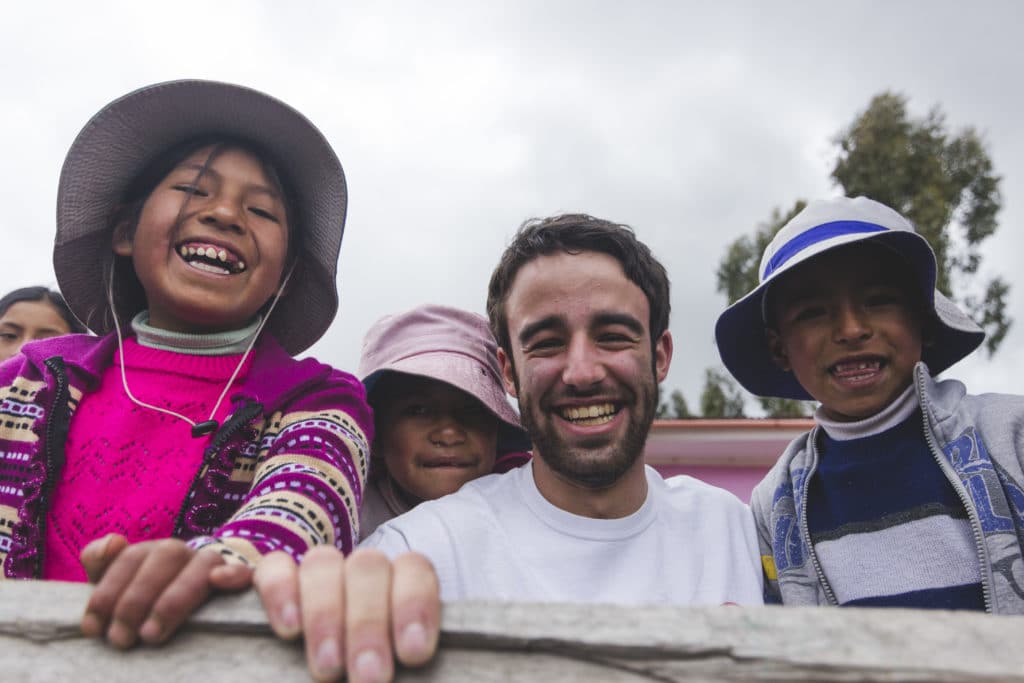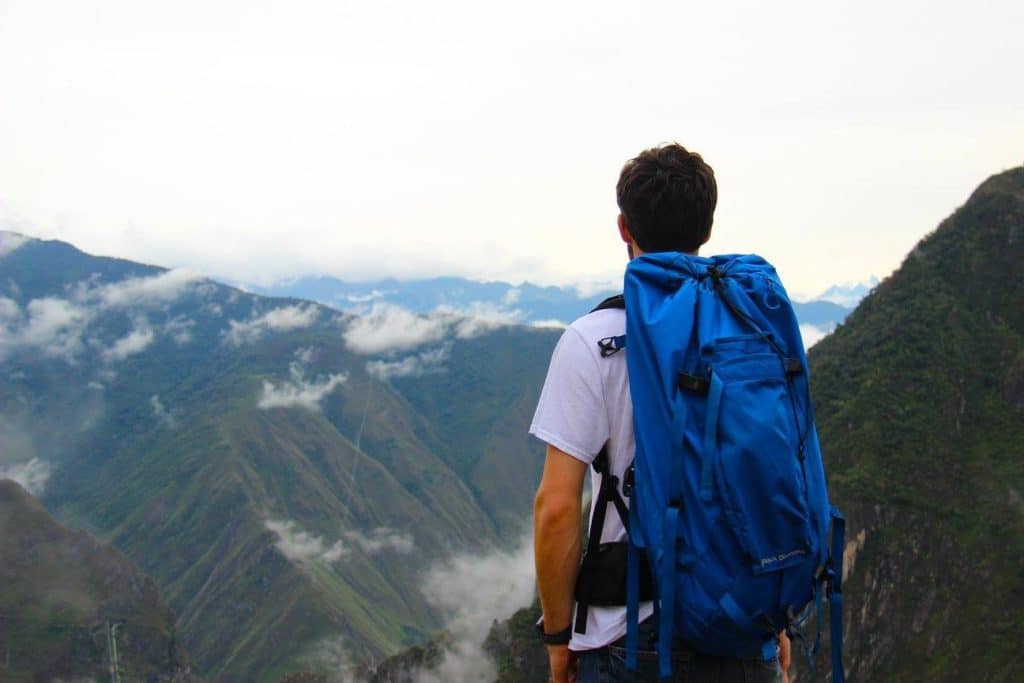“Distance and difference are the secret tonic of creativity. When we get home, home is still the same. But something in our mind has been changed, and that changes everything” – Jonah Lehrer
Finding the right mindset.
We can all agree: travel is a transformative experience. It has the power to significantly shape your personal and professional development while encouraging you to view the world through a new lens. However, it’s important to remember that your role as a traveler also affects the destinations you visit.
At The GREEN Program (TGP), we believe that a key aspect of becoming a global citizen is to explore with intention and responsibility. To help you make the most of your journey with us, we’d like to share some insights on the numerous benefits of travel, along with practical tips on how to be a mindful traveler, no matter where your adventures take you.
By embracing these principles, you can enhance your travel experience while ensuring that your impact on the world is a positive one.
The importance of a global education.

Studying abroad offers a wealth of personal and professional benefits—many of which likely brought you to this point! Immersing yourself in a new part of the world can serve as a powerful catalyst for personal growth and a valuable opportunity to cultivate independence.
Today, an increasing number of employers are acknowledging the significance of international education. They understand that experiences gained abroad can enhance skills such as adaptability, cross-cultural communication, and problem-solving. As you embark on this journey, you’re not just expanding your horizons; you’re also equipping yourself with the tools and experiences that can set you apart in the competitive job market.
Brightpark Edu-Travel report cited that 94% of business leaders in America believe that travel experience directly translates to a competitive advantage in the workplace. By being aware of the benefits of travelling and how the skills you develop during your journey will translate into your personal and professional life, you are learning how to maximize your TGP experience. In order to get you thinking about the takeaways you’ll receive from your GREEN Program and how you can leverage them in your career, here is a list of the benefits of travelling by Forbes:
Ability to adapt. Travel, like business, involves changing plans and finding ways to adapt to new environments. Flights get delayed; destinations are hard to find; culture shock is hitting you; the list of problems continues. However, while these issues may seem like hindrances at first glance, they serve as real-life teaching moments. You’re learning how to turn obstacles into stepping stones and getting out of your comfort zone. What better way to test your problem-solving skills than in a completely new environment?
Better communication. Communication is an art form, believe it or not. It’s not just knowing how to string words together, but it’s also about being able to control your body language and verbal communication in a manner that will allow you to make solid impressions and lead with authority. When traveling, language barriers and cultural differences may be challenging to adjust to, but you find creative ways to work around them.
Teamwork skills. One of the biggest advantages of traveling in a group is the ability to grow as a team. You’re forced to rely on others’ strengths and compromise your desires for the betterment of the group. By working in a collective group, you’re learning that selflessness breeds positive results.
Time management. Logistically, traveling is all about time management. From getting to the airport on time, to catching your flight, to making time out of your busy schedule so you ensure you’re experiencing all the things you want to see. This skill translates back to business and instills a better sense of time management in those who have extensive experience traveling.
Leadership. In the end, all these skills result in you becoming a better leader. Traveling teaches leadership every step of the way. Whether you’re on your own or with companions, you’re forced to make decisions and be autonomous as you grasp how to navigate a new environment. This ability to lead during your travels will transfer to leading in other settings as well.
Traveling globally, traveling responsibly.

Another important part of travelling is thinking about the impact that you are making as a traveler. Tourism is one of the largest industries in the world, and it’s not without its positive and negative effects on local communities and environments. Being mindful about how you travel starts with cultivating an attitude of purpose towards your journeys. We promise the results will yield more authentic and meaningful experiences.
Here are some tips on mindfulness to consider before you plan your next itinerary or arrive at your next destination:
Avoid drive-by tourism. Checking off the Top 10 list may provide good photos for social media, but think about the empty feeling you are left with because you did not make a real connection to the places and people you visited. and to the delightful similarities and mysterious differences between us all. Reconsider pulling back on speed and superficiality, and you’ll reduce the threat of exhausting yourself and the physical and emotional resilience of the destination and the people in it.
Seek more to engage than to escape. We often look at travel as a getaway from the stresses, challenges, and constraints of our daily lives. Instead of this singular mindset to escape, also consider travel as a way to engage with something or someone in a new and different way. Take your out-of-your comfort zone discoveries and see them as a new manner of escape. This approach can help build confidence and worldliness, enabling you to return to your everyday “normal” life with a fresh perspective.
Consider every travel experience as a context for education and learning. If we look at travel the right way, every venture into our world underscores that travel is the classroom. However, as we seek more from our travel experiences, we can also see each hiatus as a potential context for active education and continual learning; be it a language lesson, cooking class, or exploration of one’s artistic skills.
Bring it home. Avoid adopting an acquisition-oriented mindset, where you merely shift from competitively gathering materials to a similarly competitive pursuit of experiences. Instead, be mindful of what you truly value. Consider enriching your experiences in all their dimensions and connecting what you’ve learned during your travels to your everyday life.
Reflect on how these insights can be applied to the place you call home. By doing so, you can deepen the impact of your journey and foster meaningful change not only within yourself but also in your community. Embrace the opportunity to integrate your experiences into your life, creating a richer and more fulfilling narrative.
In addition to these tips on a travel-positive mindset, there are plenty of things you can do to reduce your negative impact as a tourist environmentally and culturally. From researching about the culture of your destination before you visit to offsetting the carbon emissions of your flight, you can make huge steps towards traveling responsibly. You can explore some more tips on sustainable tourism here.
Okay, we’ve talked so much about travel and its benefits, it’s time to go do it! If you have insight or tips on how to travel responsibly, we’d love to hear from you, so don’t be afraid to reach out to us. Now, strap on that Global-Citizen-mindset because we can’t wait to travel with you!
References:
Forbes: Entrepreneurs Think That Traveling Makes Them More Successful
